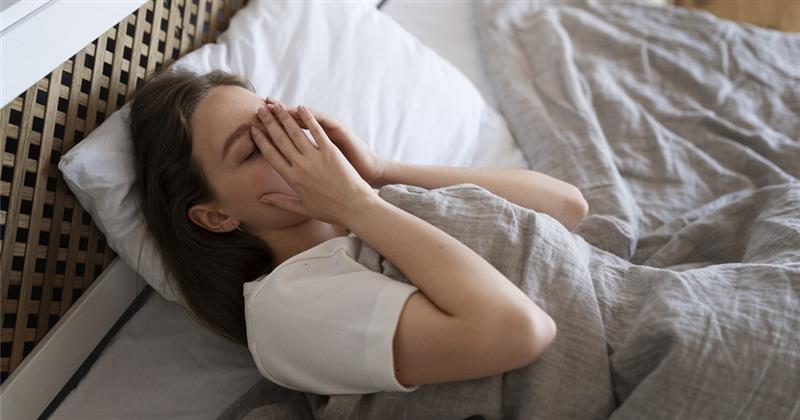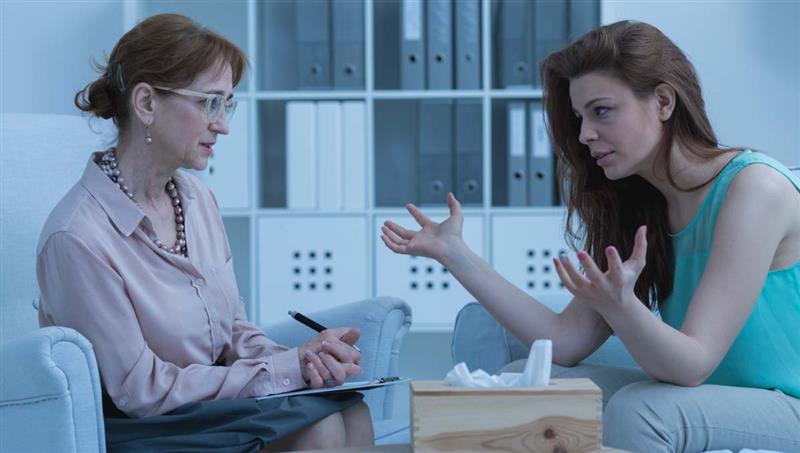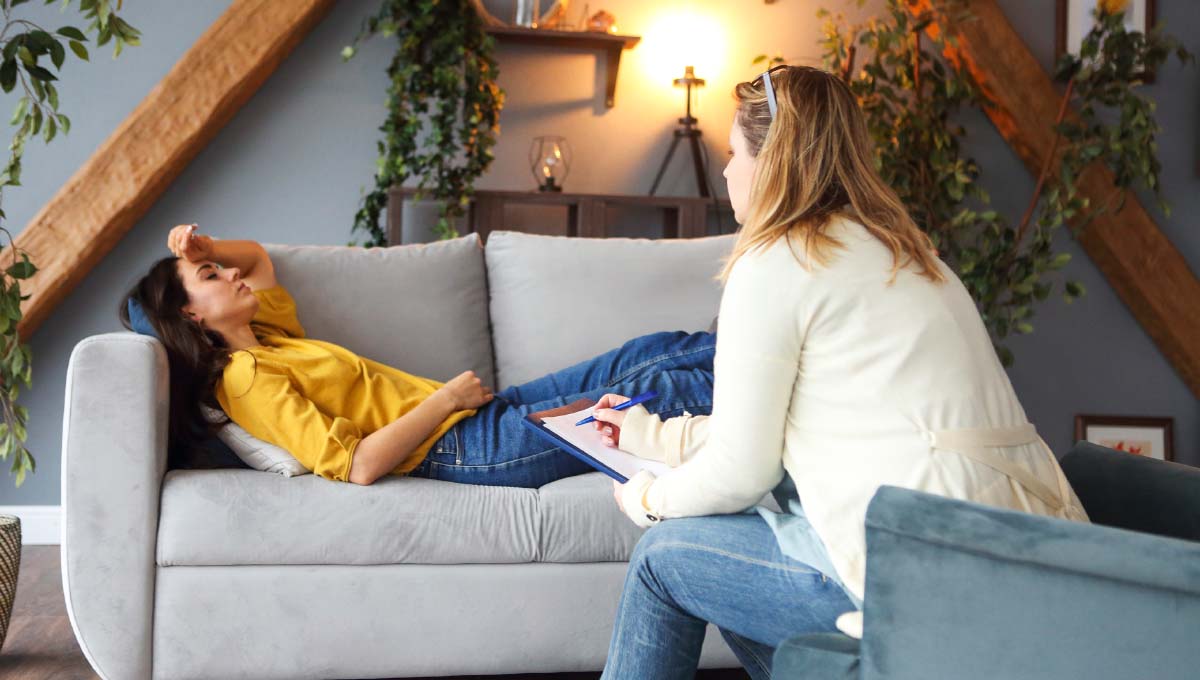Sleep functions as a fundamental requirement that the human body and mind need for their proper functioning. The essential role of sleep is to maintain physical wellness and emotional balance and support cognitive processing. A few days of interrupted sleep can trigger dangerous signs of physical and mental distress within the body.
Well, sleep deprivation psychosis causes people to experience confusion while also inducing hallucinations, poor decision-making abilities and detachment from reality. The condition can intensify current health problems while creating additional severe mental and physical complications if medical attention is not sought.
Seeking professional help becomes essential when sleep disturbances continue because sleep plays a vital role in our overall health. Stay with us till the end of the article to get more interesting information!
Sleep Deprivation Psychosis
Sleep deprivation psychosis develops after someone remains without sleep for several consecutive days. A lack of sufficient sleep makes the brain dysfunctional, and this can trigger confusion and paranoia along with hallucinations.
Furthermore, the symptoms of sleep deprivation include intense anxiety and restlessness, together with impaired cognitive abilities. A person experiencing sleep deprivation psychosis will lose their connection to reality and cannot differentiate between real things and imagined ones.
In addition, the occurrence of this condition remains infrequent, yet it generally develops when a person faces intense emotional distress or mental health problems. Medical intervention becomes necessary to treat some symptoms that appear.
The health of your brain depends on sleep quality; thus, obtaining regular good sleep prevents such mental conditions. Someone who displays these symptoms needs immediate medical assistance to prevent severe complications. So, the proper sleep deprivation psychosis treatment is vital to manage the signs and get back to the normal routine.
Sleep Deprivation Psychosis Symptoms
Sleep deprivation psychosis symptoms include:
- Hallucinations
- Paranoia
- Delusions
- Confusion
- Irritability
- Memory problems
- Anxiety or panic
- Mood swings
- Loss of sense of reality
Sleep Deprivation Psychosis Causes
Here are the causes of sleep deprivation psychosis:
- Lack of sleep for several days
- Severe emotional stress or trauma
- Mental health disorders
- Irregular sleep schedule or night shift work
- Substance abuse
- Medical conditions affecting sleep
- Overuse of stimulants
- Extreme fatigue from overworking or studying
- Jet lag or frequent time zone changes
Can Sleep Deprivation Cause Psychosis?
Sleep deprivation leads to psychotic symptoms in people. Brain exhaustion occurs when someone fails to sleep for an extended period, which leads to abnormal brain functioning. The mind becomes confused while mood swings occur, along with difficulties in clear thinking. People experience frightening symptoms that become difficult to manage.
Moreover, during sleep, the brain finds time to rest and perform repairs. The mind loses touch with reality, while stress levels increase when individuals do not get sufficient sleep. The lack of sleep leads to mental symptoms that include paranoia alongside fear and unusual thoughts.
Hence, the person might display abnormal behaviors during extreme phases of the condition. Long-term sleep deprivation may cause a mental health breakdown among people who are vulnerable to such conditions. People need enough restful sleep to maintain mental health, functional thought, and emotional stability.
Does sleep deprivation cause nausea?
Nausea arises as a possible effect when you fail to obtain sufficient sleep. The body, along with the brain, enters a state of stress when sleep time is insufficient, leading to digestive problems. Nausea, along with stomach upset, are potential side effects of insufficient sleep.
Additionally, insufficient sleep disrupts the hormonal equilibrium, which manages hunger and digestion functions. The lack of sleep creates conditions that lead to stomach discomfort along with nausea and appetite loss. Thus, sleep serves as an essential factor for your health and sufficient restful sleep helps regulate these processes to decrease nausea risks.
You may also like to read: Emotional Psychosis Recovery and Treatment
Can sleep deprivation cause hair loss?
Sleep deprivation may cause hair loss as a medical affects on the body. Not getting enough sleep puts your body into stress mode, thus impacting your hair growth. Stress affects the normal operation of the hair growth cycle, thus causing hair thinning and eventual hair loss as time progresses.
Moreover, your body needs sleep to perform cell repair operations, which also protect the health of your hair-producing cells. Proper sleep helps maintain the right balance between vital hormones in the body. Insufficient rest disrupts hormone equilibrium, so your hair may become thinner and grow at a slower rate. When sleep deprivation persists, it worsens hair thinning so that the condition becomes more apparent.
Tips to Manage Sleep Deprivation Psychosis
1- Prioritize Sleep
Your nightly sleep should be 7-9 hours because this rest promotes full recovery for body and mind. A regular sleep schedule that includes the same bedtime and wake-up time every day should be established. Daily routines assist your body to maintain its internal clock thus creating better sleep patterns. Sleep becomes a priority, which stops stress from accumulating alongside mental confusion.
2- Reduce Stress
Stress levels need reduction because they intensify the symptoms of psychosis; therefore, you should discover relaxation methods. Deep breathing techniques, together with meditation as well as progressive muscle relaxation, provide effective methods to restore mental calmness. The methods decrease stress levels that result from lack of sleep.
3-Create a Sleep-Friendly Environment
The design of your sleeping environment should promote relaxation because it helps both fall asleep and stay asleep. Create smooth and dark sleep conditions with optimum temperature control in your bedroom. The presence of bright lights and electronics should be eliminated from your environment. A tranquil sleep space allows people to achieve deeper, more restful sleep.
4-Seek Professional Help
Professional medical assistance must be sought if you experience psychosis or severe hallucinations. Mental health professionals will help discover the root causes of your condition while providing suitable sleep deprivation psychosis treatment options. Medical professionals will use therapy together with medication to treat the symptoms. When people receive help right away, their condition does not become more serious.
5-Limit Stimulants
Stimulants, including caffeine together with nicotine, create obstacles for falling asleep while worsening your current sleep deprivation state. You should abstain from taking these substances at all times, particularly during the afternoon and evening periods. Eating large meals right before bedtime leads to sleep disturbances. Your body needs stimulant reduction for relaxation, which results in better sleep quality.
6-Stay Hydrated and Eat Well
Proper hydration and adequate nutrition work together to maintain both your physical health and mental acuity. The symptoms of sleep deprivation become worse when you experience dehydration or eat unhealthily. Washing your body with adequate fluids while consuming nutritious food will make you both more energetic and feel better. The practice of healthy habits creates better conditions for handling sleep deprivation symptoms.
7-Rest During the Day
Short daytime naps function as a way to regain energy when nighttime sleep becomes impossible. Choose napping periods between 20–30 minutes so your nighttime sleep remains uninterrupted. Short daytime rests help minimize confusion and disorientation, which results from sleep deprivation.
Treatment Through Medication Management
MAVA Behavioral Health provides a medication treatment for effective sleep deprivation psychosis management. The mental health providers at MAVA Behavioral Health adopt a thorough examination of symptoms along with medical background and sleep cycle assessment. So, we adopt an specific sleep deprivation treatment approach.
Similarly, our treatment includes antipsychotic medications for severe symptoms such as hallucinations and paranoia, together with sleep aids for healthy rest recovery. We aim to control your mental health problems alongside enhancing your sleep patterns. The treatment plan includes regular monitoring of patient progress through follow-up sessions to make necessary medication adjustments which leads to the most favorable outcomes.
At MAVA Behavioral Health, patients receive comprehensive care through medication management, therapeutic support, and personalized lifestyle counseling for their complete recovery. Contact MAVA Behavioral Health to receive expert and compassionate sleep deprivation psychosis treatment.
End Note
Severe sleep deprivation psychosis causes a person to develop sleep deprivation psychosis, which results in a complete loss of contact with reality—lack of sleep results in hallucinations con, fusion mood swings, and irregular thinking patterns. The primary causes of sleep deprivation include insomnia that extends beyond normal periods and stress, as well as irregular sleep schedules and existing mental health conditions.
However, people should manage this condition by establishing regular sleep routines, using their stress levels, using stimulating substances, and consulting medical professionals when experiencing symptoms. At MAVA Behavioral Health, the experts provide professional sleep deprivation psychosis treatment by using medication management to help healthcare providers diagnose your condition and prescribe appropriate medications.
FAQs
What is sleep deprivation psychosis?
The extreme lack of sleep can lead to sleep deprivation psychosis, which causes a person to disconnect from reality. Hallucinations and confusion, together with paranoia, emerge as side effects of this condition.
How long does it take for psychosis to occur from lack of sleep?
Psychosis can develop after 72 hours (3 days) or more without sleep, but some may show symptoms sooner depending on stress levels and overall health.
What are the symptoms?
Symptoms include hallucinations, delusions, mood swings, disorganized thinking, confusion, and sometimes paranoia or fear.
Can one night of no sleep cause psychosis?
One night may cause fatigue and confusion, but full psychosis usually happens after several days of no sleep. However, people with mental health conditions may be more sensitive.
Is sleep deprivation psychosis dangerous?
Yes, it can be very serious and affect decision-making, emotional control, and perception. Immediate treatment is important.









